The name Oonagh Monahan might not be instantly recognisable to the general public, but it’s a name that over 400 small businesses know well, most of which are in the food sector.
These are the businesses that Oonagh has worked to develop over the past 12 years, work that was recognised by the Irish Quality Food Awards when Oonagh won their inaugural Food Hero award last October.
The Dromahair-based woman has over 35 years’ experience in the food sector and boosts an impressive CV both in terms of academic achievement and extensive management experience.
She brought all this together with the publication of her book ‘Money for Jam’ a guide to help those setting up their own food business.
A career in the making
Oonagh Monahan’s early life was spent in Belfast where her mother was born and raised. However, like so many other families at the time, the Troubles were to drive them out of Belfast.
They made their new home in Co Galway where her Dad’s family came from, settling in Barna. Oonagh has fond memories of the Salerno Secondary School from where she went to University College Galway to study for a science degree.

Oonagh Monahan, author of the book Money for Jam, in Hazelwood, Sligo. \ James Connolly
“I loved it, but I graduated in the mid-1980s and there wasn’t a job to be got. So I did a post-grad in food science and technology in what’s now TU Dublin.”
Surprisingly her first job was not in the food but pharmaceutical sector. Further education followed including a master’s in food engineering from UCD.
She even won a scholarship from Heinz to do research on predicting the shelf life of food emulsions such as salad cream.
After UCD, she landed a position with Ranks Hovis McDougall, the giant British bread and cake bakers. She was assigned to work as a food scientist with Mr Kipling Cakes.
“My job was to work on new ranges; should we add more apple filling? How could shelf-life be increased? Looking at sugar levels.
“You wouldn’t believe the range of work we did and it was great graduate training and I loved it.” The job paid dividends, as today Oonagh is the technical consultant to the Irish Bread Bakers’ Association within Ibec.
Coming home
Then in 1991 life changed for Oonagh. Her father died after a heart attack. “Dad’s death was a terrible shock and it made me want to come home to Ireland.
“I interviewed with Kerry Group for a job in quality management at Grove Turkeys, Co Monaghan. I got it and remained there until 1995.”
Storms and strikes can delay getting orders out. You are well paid, but you earn it by taking on lots of responsibility
At the time, Grove processed three million turkeys a year, with a third of them processed in the four weeks before Christmas.
As quality manager, Oonagh handled customer complaints, lab testing, technical issues, working with the supermarket multiples and more.
“The food sector is demanding. You have to plan without knowing your orders. Storms and strikes can delay getting orders out. You are well paid, but you earn it by taking on lots of responsibility.”

Surprisingly, Oonagh’s first job was not in the food sector, but the pharmaceutical sector. \ James Connolly
Oonagh’s next move was away from quality control and into operations management as production manager with Fort Dodge Laboratories, a veterinary vaccines company based in Sligo.
She worked here for eight years and was the first Irish woman appointed to its board of directors.
Work-life balance
After eight years in the job at the age of 35, Oonagh faced another crossroads in her life. “I suppose you could say life intervened. I had met Frank Quinn and we were married within a year and baby Emmet was born the following year.
“After 15 years of a challenging career I decided to take a time out.”
Oonagh, however, didn’t fully engross herself fully in domestic bliss. Having had up to 40 people reporting to her, she was perfectly qualified to offer interview skills and CV preparation training.
It was work that fitted in perfectly with her young family and need for work-life balance.
I was in a dilemma. I wanted to be there to pick my children up from school but it was impossible to do when working full time
But Oonagh’s skills were in demand and she accepted a one-day-a-week contract with the Food Technology Centre at St Angela’s College. Before she knew it that contract went to two days a week and then became full time. By now Emmet had just started school and he had a baby sister – Anna – who was three and a half. “I was in a dilemma. I wanted to be there to pick my children up from school but it was impossible to do when working full time.
“So I decided to take a year out and set up my own business. It would be grand, no problem at all, I thought.
I also worked with Leader and became a mentor with Enterprise Ireland and many Local Enterprise Offices
“I started Alpha Omega Consultants from home in 2008 and got my first piece of work with the Town and Country Homes Association (now B&B Ireland). It was to look at how classification and licensing of B&Bs compared between Ireland and the UK.
“Then I was appointed as a consultant for Fusion, the programme for small and medium enterprises from InterTrade Ireland, and it brought me into contact with food businesses.
“I also worked with Leader and became a mentor with Enterprise Ireland and many Local Enterprise Offices. It was two days a week and it suited family life perfectly.”
But in 2010 the business in which Oonagh’s husband worked was closed due to the recession.
“We always said that ideally one of us would be at home full time with the children and that’s what happened, but it also meant I had to find work to fill five days a week.”
Worked with 400 businesses
And that’s exactly what she did. Oonagh reckons that in the last 12 years she has worked with over 400 individuals from a single session to a consultancy for 18 months.
“My job is business development – that means working with start-ups as well as taking existing busy businesses to the next level.
“That means dealing with everything from packaging to exporting to product development to routes to market to new legislation on labelling to financial management and securing funding.
“I work with sole traders, farmers who want to diversify and producer groups such as a sheep farmers in Wicklow who wanted to develop their own lamb brand.”
She remembers trying to get information packs on these topics but there was nothing there. Oonagh saw an opportunity to fill this gap, and in 2013 her first book, Money for Jam, the Essential Guide to Starting Your Own Small Food Business, which was full of practical advice for food entrepreneurs, was published by Oak Tree Press. The second edition was published in 2017.
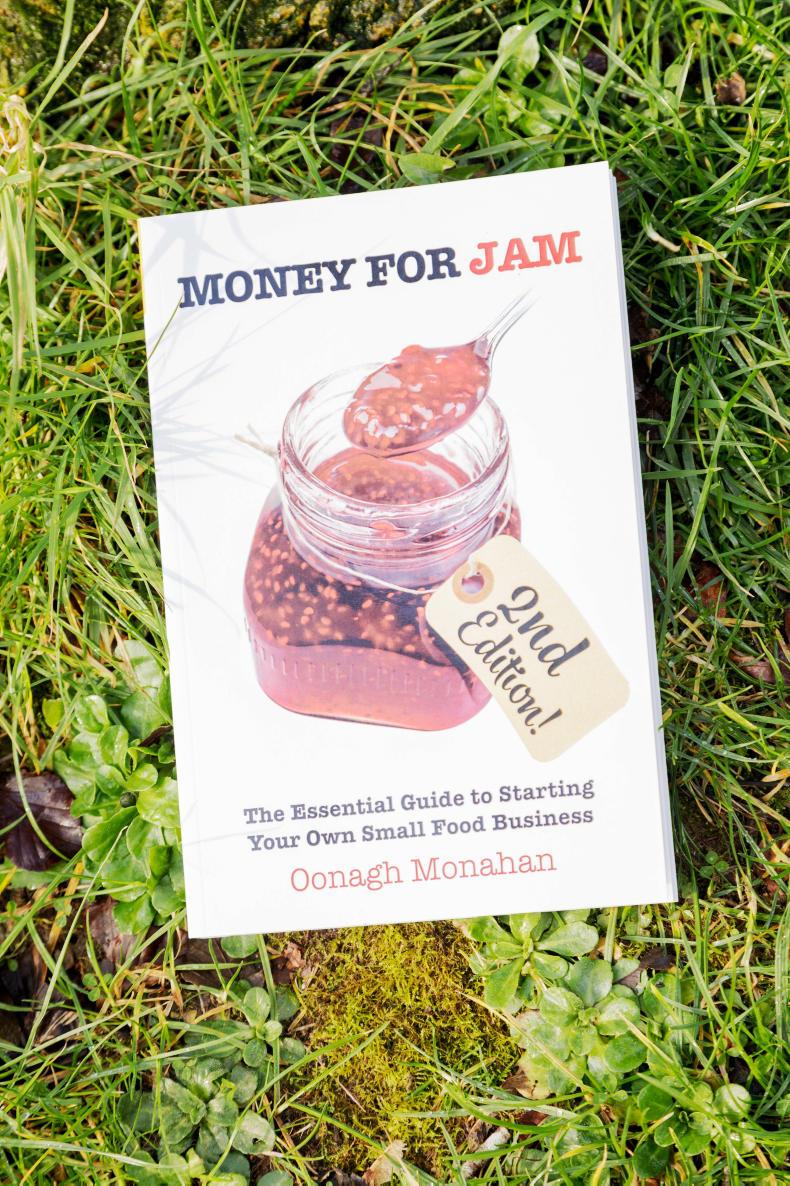
Oonagh Monahan’s book Money for Jam. \ James Connolly
Oonagh continues to work with small businesses, many of whom are facing their greatest challenge with Brexit. It looks like the makings of a new chapter in Money for Jam.
Oonagh’s advice to anyone thinking of setting up a food business is to do their research and know what the trends are. “Not so long ago, most Irish people never heard of hummus and before that avocados and broccoli were considered exotic.
“Trends come and go, so-called super foods had their moment while the growth in gluten-free seems to have settled down. Vegan food is still in a growth phase.
“Consumers say that they are more conscious of healthy eating, seasonality and climate change.
“But what people say and do are very different and price remains a major factor in their purchasing decisions. It’s very easy to preach but not all people are confident about cooking or in a position to spend time buying fresh food.
“Education is the key to changing this, but it’s a long road.”
Food needs to be authentic and a personal story or provenance helps sales a lot
“Healthy convenience is a continuing trend across all demographics. It’s driven by people who like good food, are health conscious but are too busy to make meals.
“Food needs to be authentic and a personal story or provenance helps sales a lot. The consumer will only buy again because of its taste. All the waffle, branding and idealism in the world won’t help unless the food tastes good. And there’s always a market for indulgence – it’s why new desserts keep appearing on supermarket shelves.”
With all her experience in advising small and medium enterprises, Oonagh advises that people shouldn’t underestimate how challenging and tough setting up a food business can be. Common mistakes include underestimating the time, work and money involved. “People don’t understand costing and as a result under cost their product. They also underestimate the skills they need. Just because you are good at growing vegetables doesn’t mean you will be any good at selling them.
“They also fail to fully assess their method of distribution. Who is going to transport the product and has that been costed into the business?
“Routes to market is another thing people do not give enough thought to. Are they going straight to retailers or will they test products at farmer’s markets? They need to realise there is a real skill to selling.”
“I am the eldest of five children and an only girl. My parents had high expectations for me. They wanted me to do well. I believe the opportunities are there and you just have to go after them. They gave me the confidence to do it and the support. That’s what everybody needs.
“The best advice I ever had was from my grandmother. She left school at 12 when her mother died and for her everything was about education. She also said that in a job you must show that you’re willing to do anything and go anywhere and she was right.
“The other bit of good advice I heard was from the former President of NUI Galway, Professor Pat Fottrell. He said that it doesn’t matter what degree you had, you still have to push yourself forward to get on.”
The name Oonagh Monahan might not be instantly recognisable to the general public, but it’s a name that over 400 small businesses know well, most of which are in the food sector.
These are the businesses that Oonagh has worked to develop over the past 12 years, work that was recognised by the Irish Quality Food Awards when Oonagh won their inaugural Food Hero award last October.
The Dromahair-based woman has over 35 years’ experience in the food sector and boosts an impressive CV both in terms of academic achievement and extensive management experience.
She brought all this together with the publication of her book ‘Money for Jam’ a guide to help those setting up their own food business.
A career in the making
Oonagh Monahan’s early life was spent in Belfast where her mother was born and raised. However, like so many other families at the time, the Troubles were to drive them out of Belfast.
They made their new home in Co Galway where her Dad’s family came from, settling in Barna. Oonagh has fond memories of the Salerno Secondary School from where she went to University College Galway to study for a science degree.

Oonagh Monahan, author of the book Money for Jam, in Hazelwood, Sligo. \ James Connolly
“I loved it, but I graduated in the mid-1980s and there wasn’t a job to be got. So I did a post-grad in food science and technology in what’s now TU Dublin.”
Surprisingly her first job was not in the food but pharmaceutical sector. Further education followed including a master’s in food engineering from UCD.
She even won a scholarship from Heinz to do research on predicting the shelf life of food emulsions such as salad cream.
After UCD, she landed a position with Ranks Hovis McDougall, the giant British bread and cake bakers. She was assigned to work as a food scientist with Mr Kipling Cakes.
“My job was to work on new ranges; should we add more apple filling? How could shelf-life be increased? Looking at sugar levels.
“You wouldn’t believe the range of work we did and it was great graduate training and I loved it.” The job paid dividends, as today Oonagh is the technical consultant to the Irish Bread Bakers’ Association within Ibec.
Coming home
Then in 1991 life changed for Oonagh. Her father died after a heart attack. “Dad’s death was a terrible shock and it made me want to come home to Ireland.
“I interviewed with Kerry Group for a job in quality management at Grove Turkeys, Co Monaghan. I got it and remained there until 1995.”
Storms and strikes can delay getting orders out. You are well paid, but you earn it by taking on lots of responsibility
At the time, Grove processed three million turkeys a year, with a third of them processed in the four weeks before Christmas.
As quality manager, Oonagh handled customer complaints, lab testing, technical issues, working with the supermarket multiples and more.
“The food sector is demanding. You have to plan without knowing your orders. Storms and strikes can delay getting orders out. You are well paid, but you earn it by taking on lots of responsibility.”

Surprisingly, Oonagh’s first job was not in the food sector, but the pharmaceutical sector. \ James Connolly
Oonagh’s next move was away from quality control and into operations management as production manager with Fort Dodge Laboratories, a veterinary vaccines company based in Sligo.
She worked here for eight years and was the first Irish woman appointed to its board of directors.
Work-life balance
After eight years in the job at the age of 35, Oonagh faced another crossroads in her life. “I suppose you could say life intervened. I had met Frank Quinn and we were married within a year and baby Emmet was born the following year.
“After 15 years of a challenging career I decided to take a time out.”
Oonagh, however, didn’t fully engross herself fully in domestic bliss. Having had up to 40 people reporting to her, she was perfectly qualified to offer interview skills and CV preparation training.
It was work that fitted in perfectly with her young family and need for work-life balance.
I was in a dilemma. I wanted to be there to pick my children up from school but it was impossible to do when working full time
But Oonagh’s skills were in demand and she accepted a one-day-a-week contract with the Food Technology Centre at St Angela’s College. Before she knew it that contract went to two days a week and then became full time. By now Emmet had just started school and he had a baby sister – Anna – who was three and a half. “I was in a dilemma. I wanted to be there to pick my children up from school but it was impossible to do when working full time.
“So I decided to take a year out and set up my own business. It would be grand, no problem at all, I thought.
I also worked with Leader and became a mentor with Enterprise Ireland and many Local Enterprise Offices
“I started Alpha Omega Consultants from home in 2008 and got my first piece of work with the Town and Country Homes Association (now B&B Ireland). It was to look at how classification and licensing of B&Bs compared between Ireland and the UK.
“Then I was appointed as a consultant for Fusion, the programme for small and medium enterprises from InterTrade Ireland, and it brought me into contact with food businesses.
“I also worked with Leader and became a mentor with Enterprise Ireland and many Local Enterprise Offices. It was two days a week and it suited family life perfectly.”
But in 2010 the business in which Oonagh’s husband worked was closed due to the recession.
“We always said that ideally one of us would be at home full time with the children and that’s what happened, but it also meant I had to find work to fill five days a week.”
Worked with 400 businesses
And that’s exactly what she did. Oonagh reckons that in the last 12 years she has worked with over 400 individuals from a single session to a consultancy for 18 months.
“My job is business development – that means working with start-ups as well as taking existing busy businesses to the next level.
“That means dealing with everything from packaging to exporting to product development to routes to market to new legislation on labelling to financial management and securing funding.
“I work with sole traders, farmers who want to diversify and producer groups such as a sheep farmers in Wicklow who wanted to develop their own lamb brand.”
She remembers trying to get information packs on these topics but there was nothing there. Oonagh saw an opportunity to fill this gap, and in 2013 her first book, Money for Jam, the Essential Guide to Starting Your Own Small Food Business, which was full of practical advice for food entrepreneurs, was published by Oak Tree Press. The second edition was published in 2017.

Oonagh Monahan’s book Money for Jam. \ James Connolly
Oonagh continues to work with small businesses, many of whom are facing their greatest challenge with Brexit. It looks like the makings of a new chapter in Money for Jam.
Oonagh’s advice to anyone thinking of setting up a food business is to do their research and know what the trends are. “Not so long ago, most Irish people never heard of hummus and before that avocados and broccoli were considered exotic.
“Trends come and go, so-called super foods had their moment while the growth in gluten-free seems to have settled down. Vegan food is still in a growth phase.
“Consumers say that they are more conscious of healthy eating, seasonality and climate change.
“But what people say and do are very different and price remains a major factor in their purchasing decisions. It’s very easy to preach but not all people are confident about cooking or in a position to spend time buying fresh food.
“Education is the key to changing this, but it’s a long road.”
Food needs to be authentic and a personal story or provenance helps sales a lot
“Healthy convenience is a continuing trend across all demographics. It’s driven by people who like good food, are health conscious but are too busy to make meals.
“Food needs to be authentic and a personal story or provenance helps sales a lot. The consumer will only buy again because of its taste. All the waffle, branding and idealism in the world won’t help unless the food tastes good. And there’s always a market for indulgence – it’s why new desserts keep appearing on supermarket shelves.”
With all her experience in advising small and medium enterprises, Oonagh advises that people shouldn’t underestimate how challenging and tough setting up a food business can be. Common mistakes include underestimating the time, work and money involved. “People don’t understand costing and as a result under cost their product. They also underestimate the skills they need. Just because you are good at growing vegetables doesn’t mean you will be any good at selling them.
“They also fail to fully assess their method of distribution. Who is going to transport the product and has that been costed into the business?
“Routes to market is another thing people do not give enough thought to. Are they going straight to retailers or will they test products at farmer’s markets? They need to realise there is a real skill to selling.”
“I am the eldest of five children and an only girl. My parents had high expectations for me. They wanted me to do well. I believe the opportunities are there and you just have to go after them. They gave me the confidence to do it and the support. That’s what everybody needs.
“The best advice I ever had was from my grandmother. She left school at 12 when her mother died and for her everything was about education. She also said that in a job you must show that you’re willing to do anything and go anywhere and she was right.
“The other bit of good advice I heard was from the former President of NUI Galway, Professor Pat Fottrell. He said that it doesn’t matter what degree you had, you still have to push yourself forward to get on.”







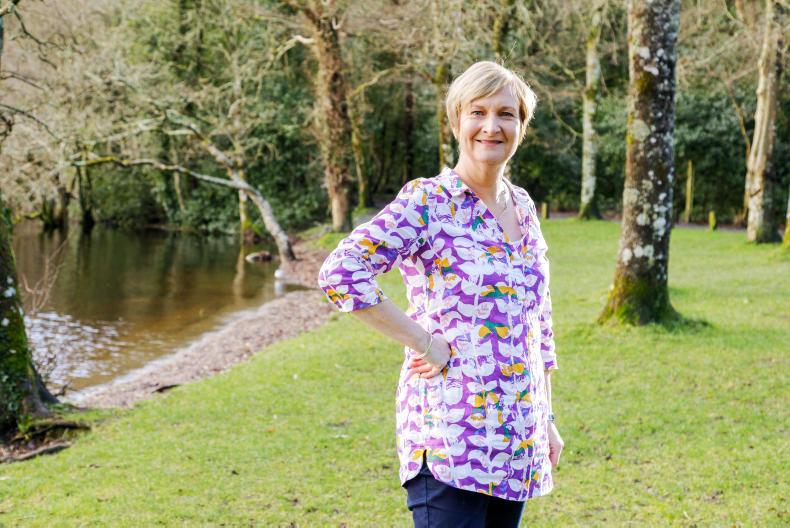

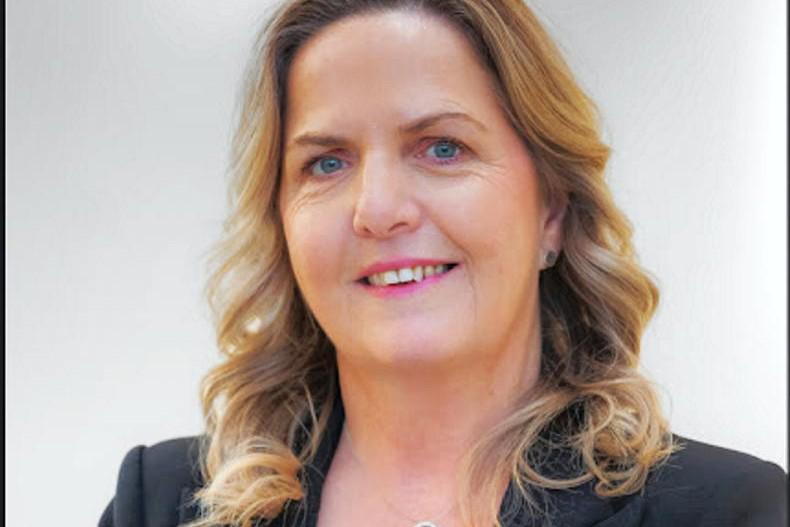
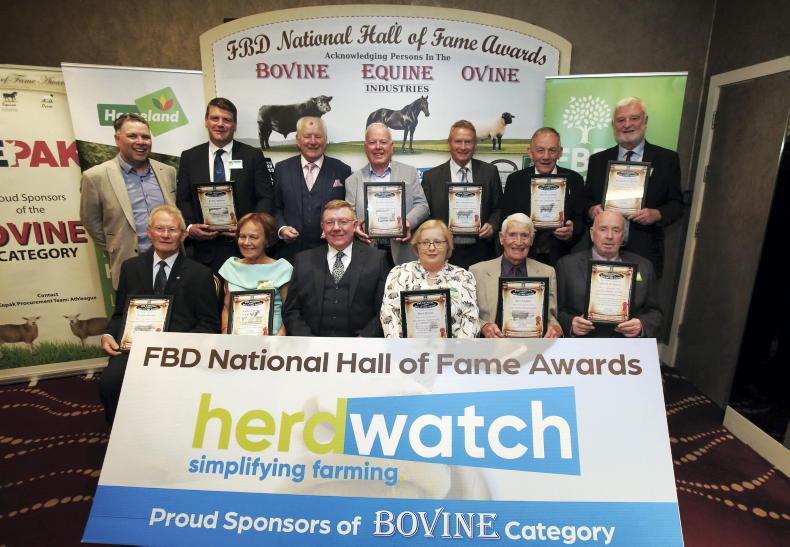
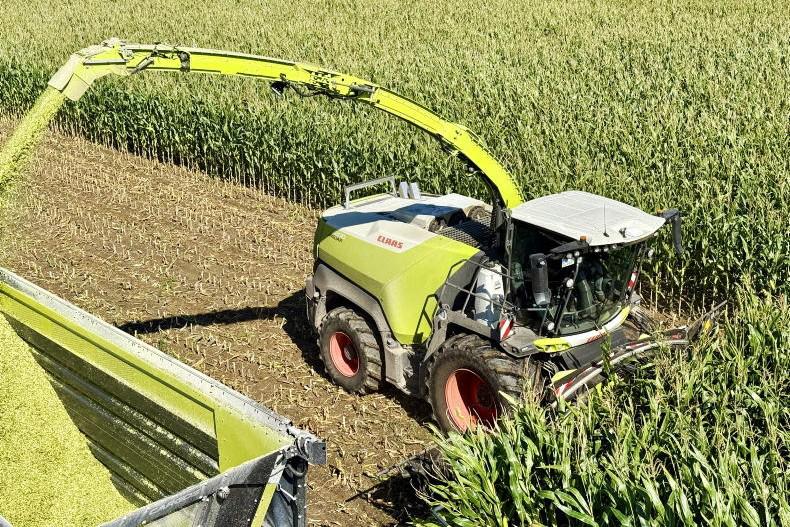
SHARING OPTIONS